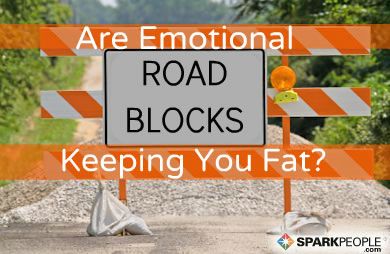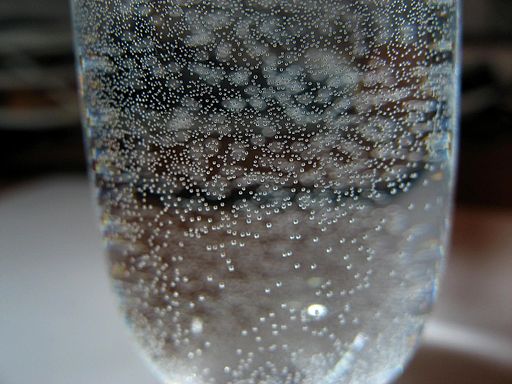The Best Way to Spend $70 on Amazon Shopping for Nootropics
Nootropics are dietary supplements or synthetic compounds that improve brain function. They sound obscure, but actually the most popular drug in the world could be considered “nootropic.” I’m talking about coffee (caffeine). Although the cognitive enhancing effects of caffeine are modest, some studies have shown that it increases mood, attention and performance on certain types of mental tasks [1].

In the last couple of years, interest in nootropics has exploded. Take a look at this Google trends plot for the query “nootropics.”
There are hundreds of documented nootropics, with varying levels of evidence supporting their effectiveness. Many of them are fairly expensive. For example, phenylpiracetam – a popular nootropic on the subreddit r/nootropics – can cost up to $10 per dose.
I’ve seen many people inquire about the best way to spend $x dollars on nootropics from Amazon. This post is my two cents on the issue.
Unexpectedly, Amazon is an excellent source for finding supplements to stack with heavy hitters like racetams, modafinil, or nicotine.
But let’s clear one thing up. You’re not going to find obscure racetams like coluracetam, or modafinil analogues like flmodafinil on Amazon. (But Amazon does allow some of these products to be sold in countries outside the United States. For example, you can buy adrafinil on Amazon.ca – which is the Amazon website in Canada).
Amazon has a really compelling value proposition. They have some of the most competitive pricing for bulk supplements, often with free 2-day shipping if you’re a prime member. So if I only had $70 to spare for the best nootropics, here’s how I would spend it on Amazon.
#1 Bulk L-theanine
Bulk powders are admittedly less convenient than encapsulated supplements, but you’ll save a lot of money in the long run buying powders. I was reluctant to buy powders for a long time, but I was glad when I made the switch.
L-theanine is particularly useful for taking the edge off of stimulants and stimulant-like nootropics. If you take modafinil, adrafinil, or ADHD medications like Adderall or methylphenidate, you certainly stand to benefit from l-theanine.
L-theanine promotes relaxation without sedation. It also mitigates the deleterious effects of chronic stress. L-theanine synergizes particularly well with caffeine [2]. L-theanine is a non-dietary amino acid naturally present in tea, which also contain neuroprotective catechins and caffeine. But watch out for excessive tea consumption, because tea can also have a lot of fluorine in it.
Bulk L-theanine is available from Amazon here ($17.96).
#2 CDP-choline
I’m big fan of choline precursors like CDP-choline or Alpha-GPC. Supplementation with choline derivatives like CDP-choline is a great way to replenish endogenous acetylcholine. Acetylcholine is the neurotransmitter that plays an important role in memory formation, but also mood. Blocking acetylcholine receptors (muscarinic or nicotinic) reliably produces amnesia. Uridine is also a nootropic in its own right – there is some tentative evidence that it enhances dopamine function.
I’ve bought Jarrow’s CDP choline ($17.95) and PowderCity’s CDP choline ($26.37) on Amazon, with good results. In this case, the cost savings of buying a bulk powder isn’t enormous, so Jarrow’s CDP choline is a reasonable choice.
One thing to watch out for is that choline supplementation can exacerbate depression. There’s this theory – it’s called the “acetylcholine theory of depression” (source: http://www.ncbi.nlm.nih.gov/pubmed/4829619). The idea is that too much acetylcholine tends to increase rumination and REM sleep, which contribute to depression.
There’s also some pretty convincing evidence that block acetylcholine receptors can relieve depression. Consider Wellbutrin, scopolamine and tricyclic antidepressants in general. They all antagonize nicotinic acetylcholine receptors, muscarinic receptors – or both – and they’re effective antidepressants.
#3 Vitamin D3
Just about everyone knows that vitamin D is synthesized in the skin, and that this synthesis is a light-dependent process. The reaction requires the absorption of a photon. But the fraction of time humans spend outdoors is declining, and excessive sun exposure can be mutagenic (e.g. pyrimidine dimers).
The obvious solution is to supplement vitamin D3. Vitamin D3 is also a potent neurosteroid in the brain that modulates multiple signal transduction pathways.
For example, it was recently reported that vitamin D protects dopamine neurons. (Dopamine is that neurotransmitter that underlies reward, motivation, and pleasure. If there’s a “happiness molecule” – then it’s dopamine).
Check out this article, published February, 2016. The Role of Vitamin D3 in the Development and Neuroprotection of Midbrain Dopamine Neurons (2016):
Vitamin D has long been synonymous with bone health. More recently, new health benefits are continually being associated with vitamin D, including a burgeoning field on neuroprotective properties. This has generated a huge explosion of interest in recent years in the potential for vitamin D to be used not only as a therapeutic in neurodegenerative disease, including Parkinson’s disease, but also as biomarkers and for risk association. With an emphasis on Parkinson’s disease, this chapter will discuss recent evidence supporting the assertion that vitamin D can be a useful therapeutic agent used as an intervention therapy to be combined with existing treatments; and the case for further development of novel treatments utilizing the potential of vitamin D.
In addition, we present novel, previously unpublished evidence showing that in a unilateral model of Parkinson’s disease, vitamin D can not only reduce the extent of denervation, but that this is also reflected in functional benefit to the animals. The potential of vitamin D is slowly being realized; in the future, it will be widely associated with far more than just bone health and may even contribute to an elusive treatment of neurodegenerative illness.
Here’s one highly-rated vitamin D product on Amazon for $7.88.
I’m going to be totally honest – I chose this product because it seemed to be the best value – not because I like my nutraceuticals in gummy form. We’ve spent $17.96 + $17.95 + $7.88 so far, so we have $26.21 remaining out of our $70 budget.
#4 Curcumin (Tumeric)
Curcum has well-documented cognitive benefits [3]. It’s been hypothesized that the lower incidence of neurodegenerative disease in India is related to curry consumption. Most of the evidence of curcumin’s beneficial effects comes from animal models or in vitro studies. It’s unclear to what extent these salutary effects will translate to humans.
Curcumin has low bioavailability, which limits its clinical utility. Two ways to enhance curcumin bioavailability is (1) co-ingestion of piperine (pepper) and (2) suspended curcumin in a liposome.
I recommend hedging your bets and doing both 1 and 2 to get the most out of curcumin.
Liposomal curcumin is available from LongVida, but it’s pricey. I’ve never bought from them before, so I can’t vouch for them, but I’ve heard good things about them.
On Amazon, you can buy organic tumeric root powder for $13.99.
#5 Cacao Nibs
Ever tried to ingest raw cacao powder? It’s pretty hard to get down. It’s very powdery and water insoluble, so it will stick to the roof of your mouth and teeth. Health-wise, eating chocolate isn’t quite as good as cacao because it often contains a lot of sugar.
The cognitive benefits of cacao are numerous. Cacao potently increases cerebral blood flow, neurogenesis and protects against oxidative damage. Take a look at the following study.
The neuroprotective effects of cocoa flavanol and its influence on cognitive performance (2013):
Cocoa powder and chocolate contain numerous substances among which there is a quite large percentage of antioxidant molecules, mainly flavonoids, most abundantly found in the form of epicatechin. These substances display several beneficial actions on the brain. They enter the brain and induce widespread stimulation of brain perfusion. They also provoke angiogenesis, neurogenesis and changes in neuron morphology, mainly in regions involved in learning and memory. Epicatechin improves various aspects of cognition in animals and humans. Chocolate also induces positive effects on mood and is often consumed under emotional stress.
In addition, flavonoids preserve cognitive abilities during ageing in rats, lower the risk for developing Alzheimer’s disease and decrease the risk of stroke in humans. In addition to their beneficial effects on the vascular system and on cerebral blood flow, flavonoids interact with signalization cascades involving protein and lipid kinases that lead to the inhibition of neuronal death by apoptosis induced by neurotoxicants such as oxygen radicals, and promote neuronal survival and synaptic plasticity. The present review intends to review the data available on the effects of cocoa and chocolate on brain health and cognitive abilities.
If you want a specific recommendation, I use these caocao nibs ($10.50). But I’ve bought other cacao nib products on Amazon and they’re generally all comparable in quality.
If we bought these 5 items on a $70 budget, we’d have $1.72 to spare. Good luck in your nootropic endeavors!.
-
Your Healthy Body Mass Index
By definition, the acronym BMI, which stands for the term Body Mass In
-
Setting Morning Intentions For Success
Ever heard of the expression, ?Getting up on the wrong side of the bed
-
Celebrity Trainer Siddiqu Talks “No More Jiggle July” Challenge
Are you struggling to lose those last 10 pounds or the f
-
Enjoy Life And Lose Weight With These Great Ideas!
If you are trying to lose weight, you need to develop a strategy
-
Healthy Snacks for Weight Loss
Often times, snacking can ruin a perfectly healthy diet. That is w
-
What You Should Know: The Risks and Rewards of Bariatric Surgery
The National Center for Health Statistics report that 30% of adults (o
- DON'T MISS
- Tummy Tuck Recovery
- Living (and Dying) on a Diet of Unintended Consequences
- How To Lose Weight The Proper Means
- Techniques for Purchasing Diabetes Medical Items On-line
- How to Lose Belly Fat Quickly – The Best Tips Ever
- Is Your Weight Loss Plan Healthy? - 5 Tips for Healthy Weight Loss
- Weight Reduction Should not be All Work, No Play
- Avoid These 5 Mistakes When Trying to Lose Weight
- How To Lose 2 Pounds A Day And find out The New You
- 7 Tips To Get Your Body Back After Vacation




